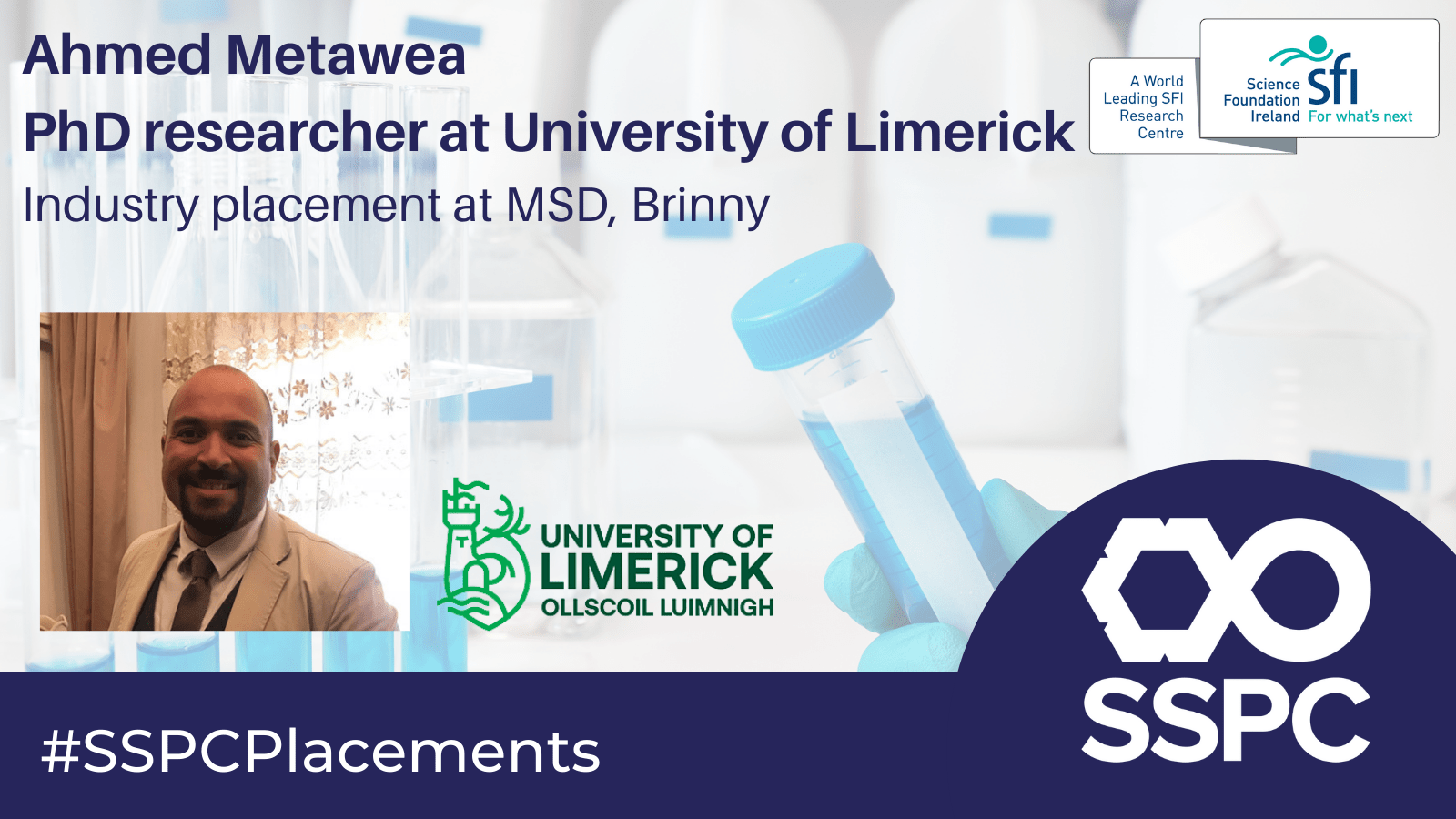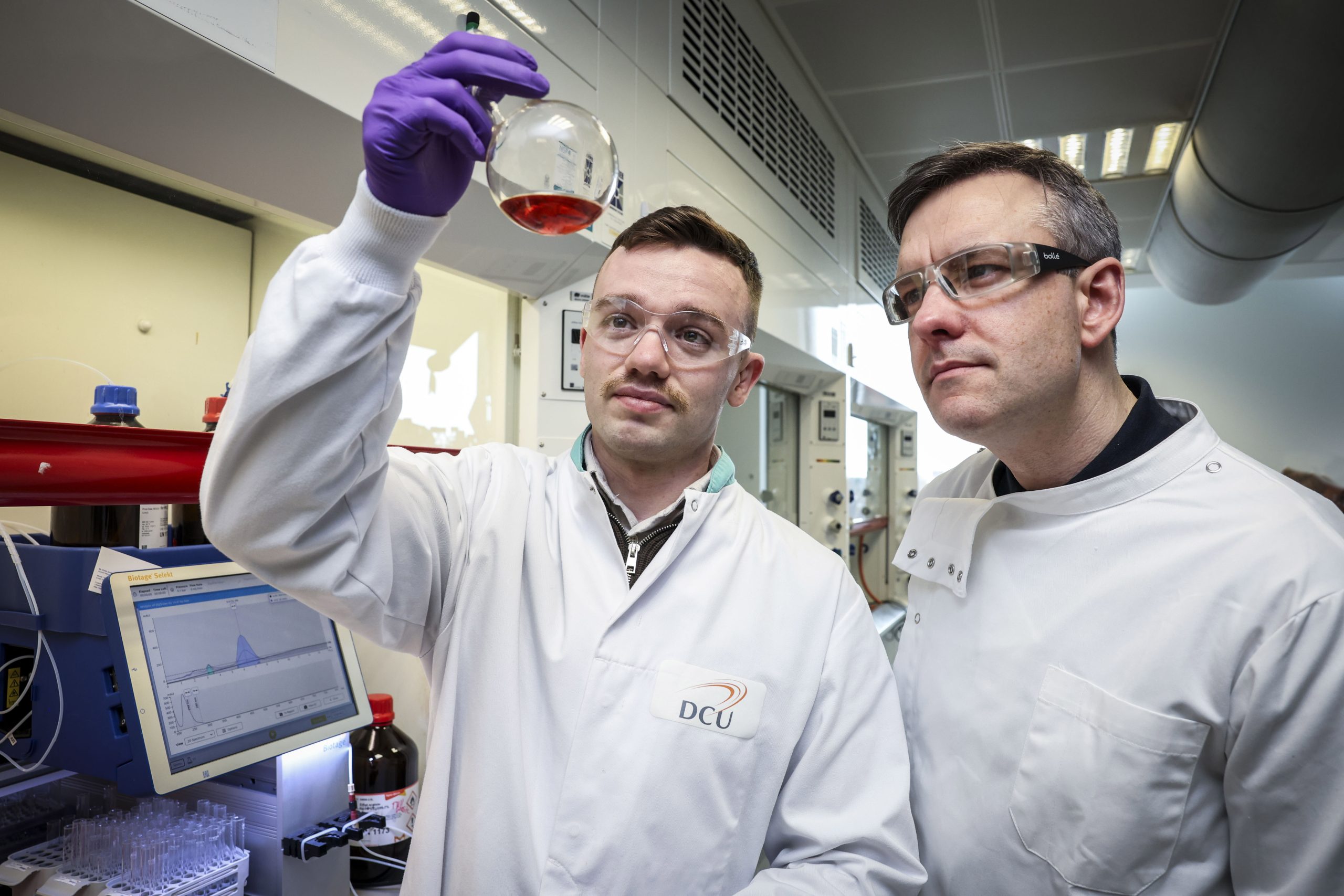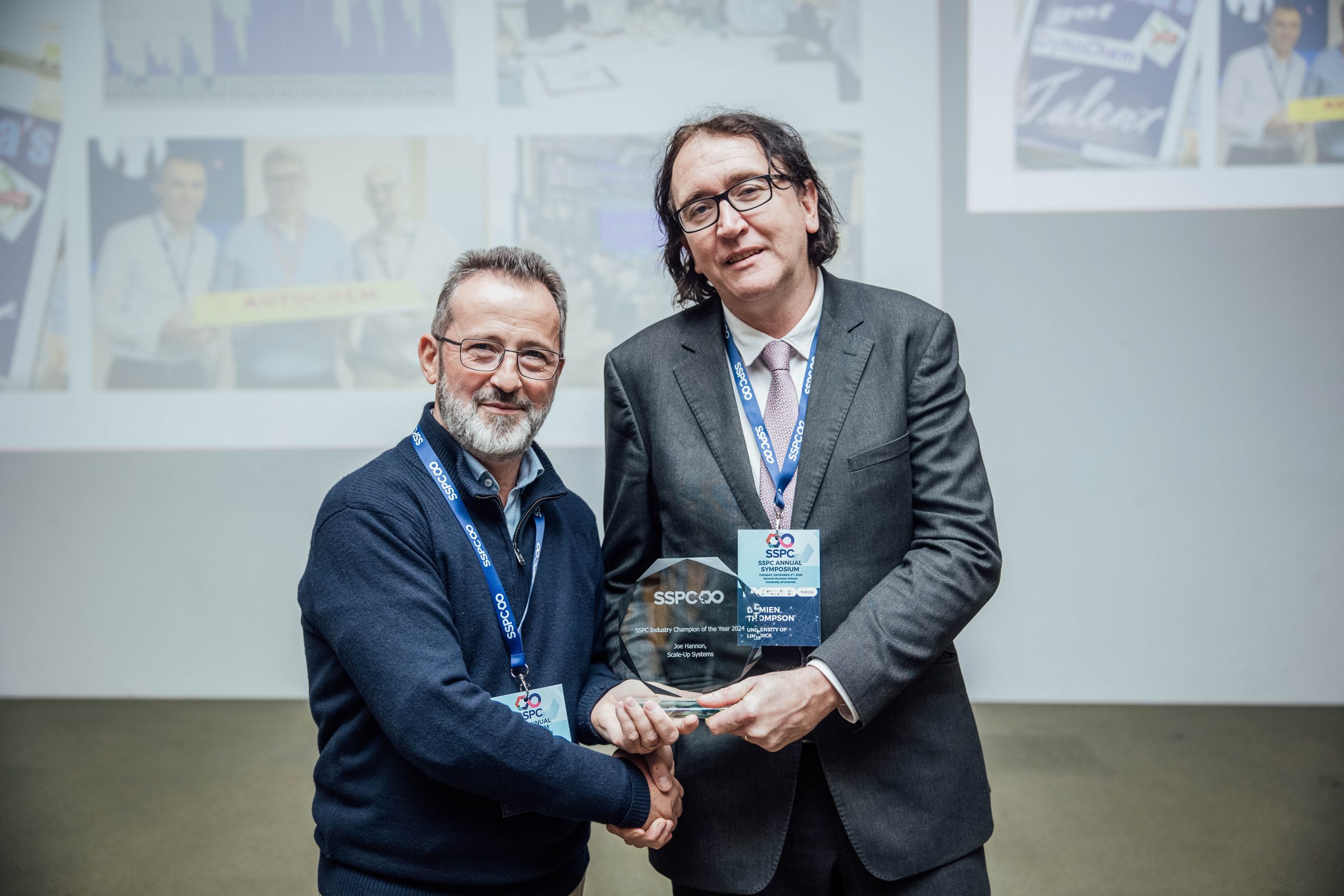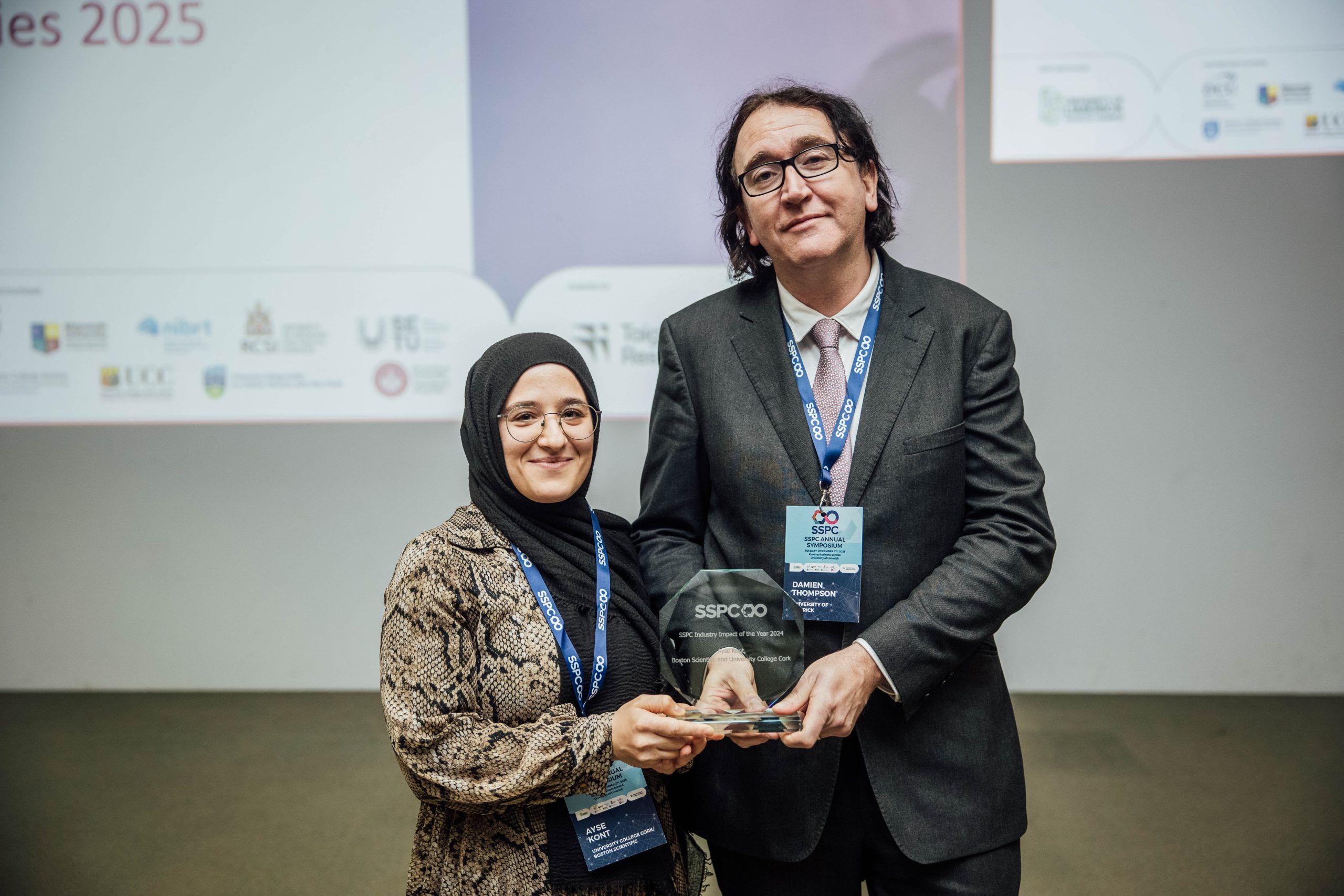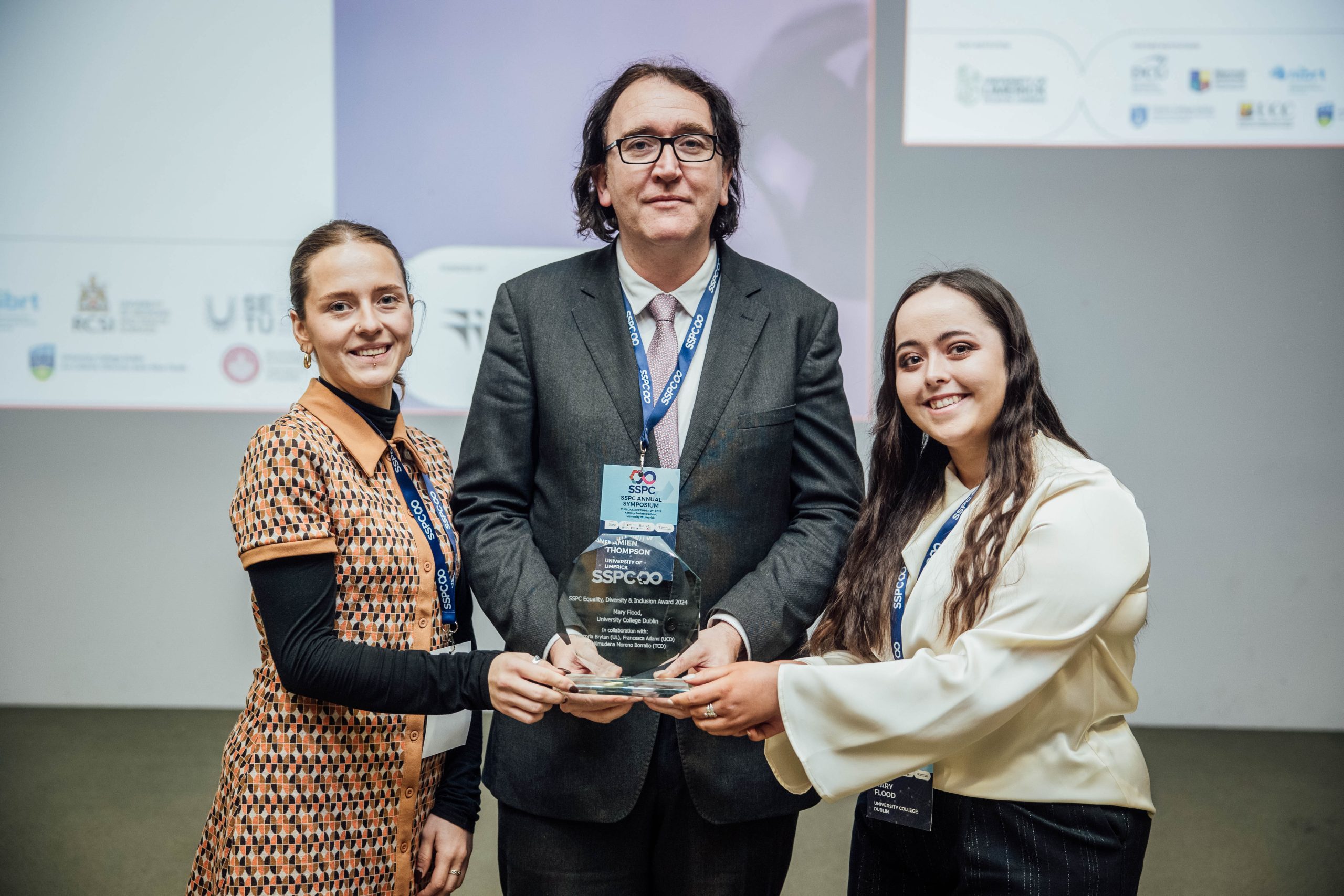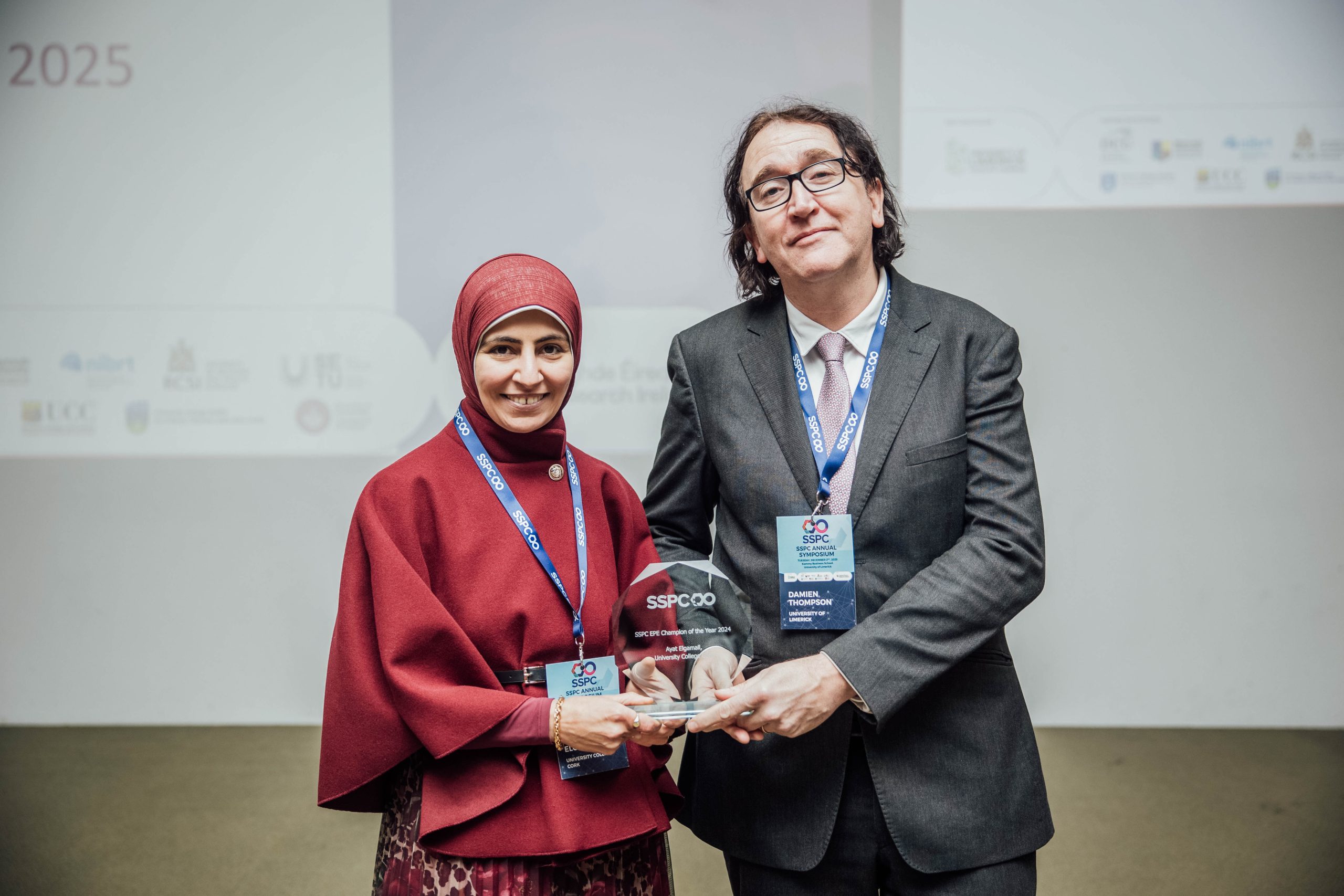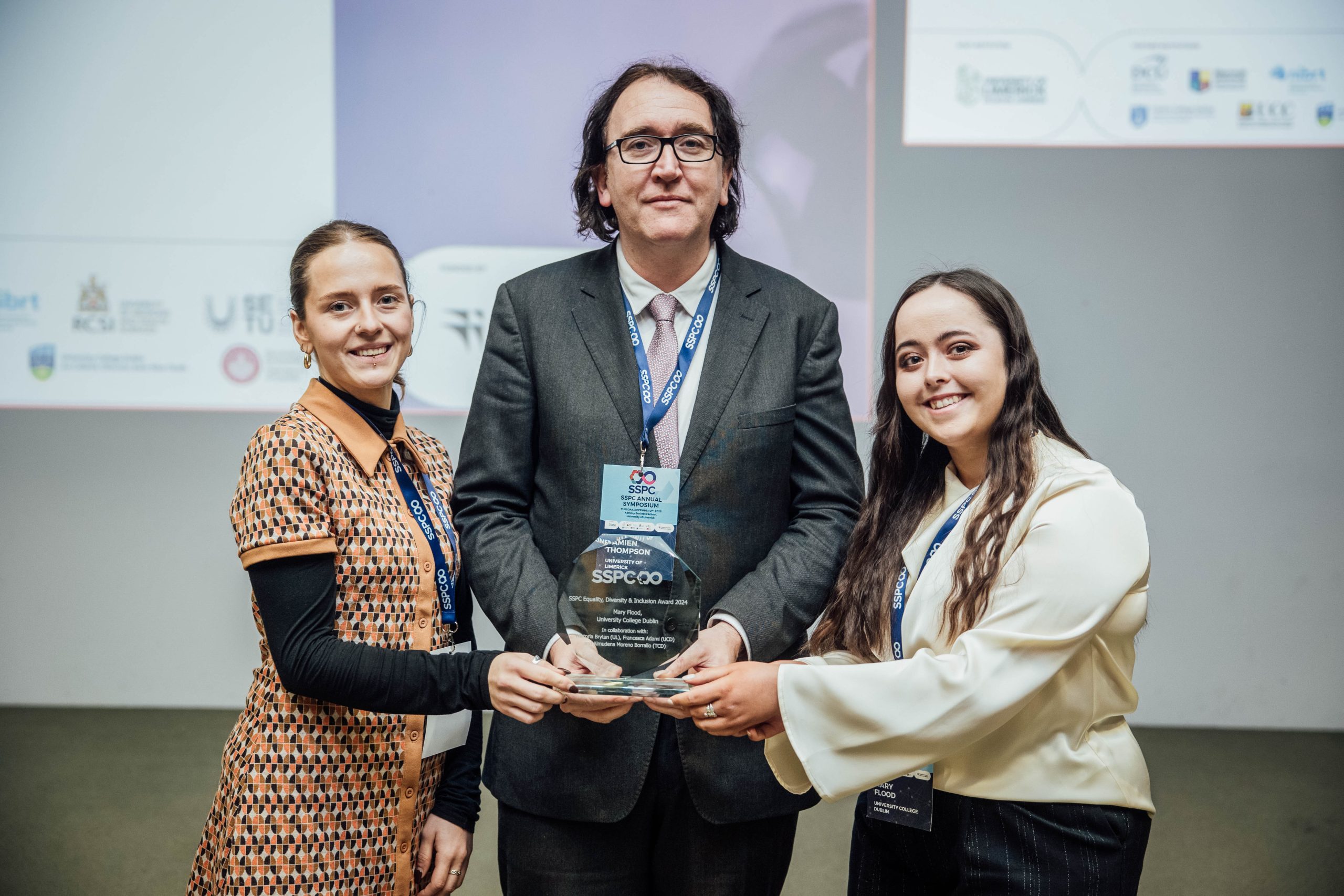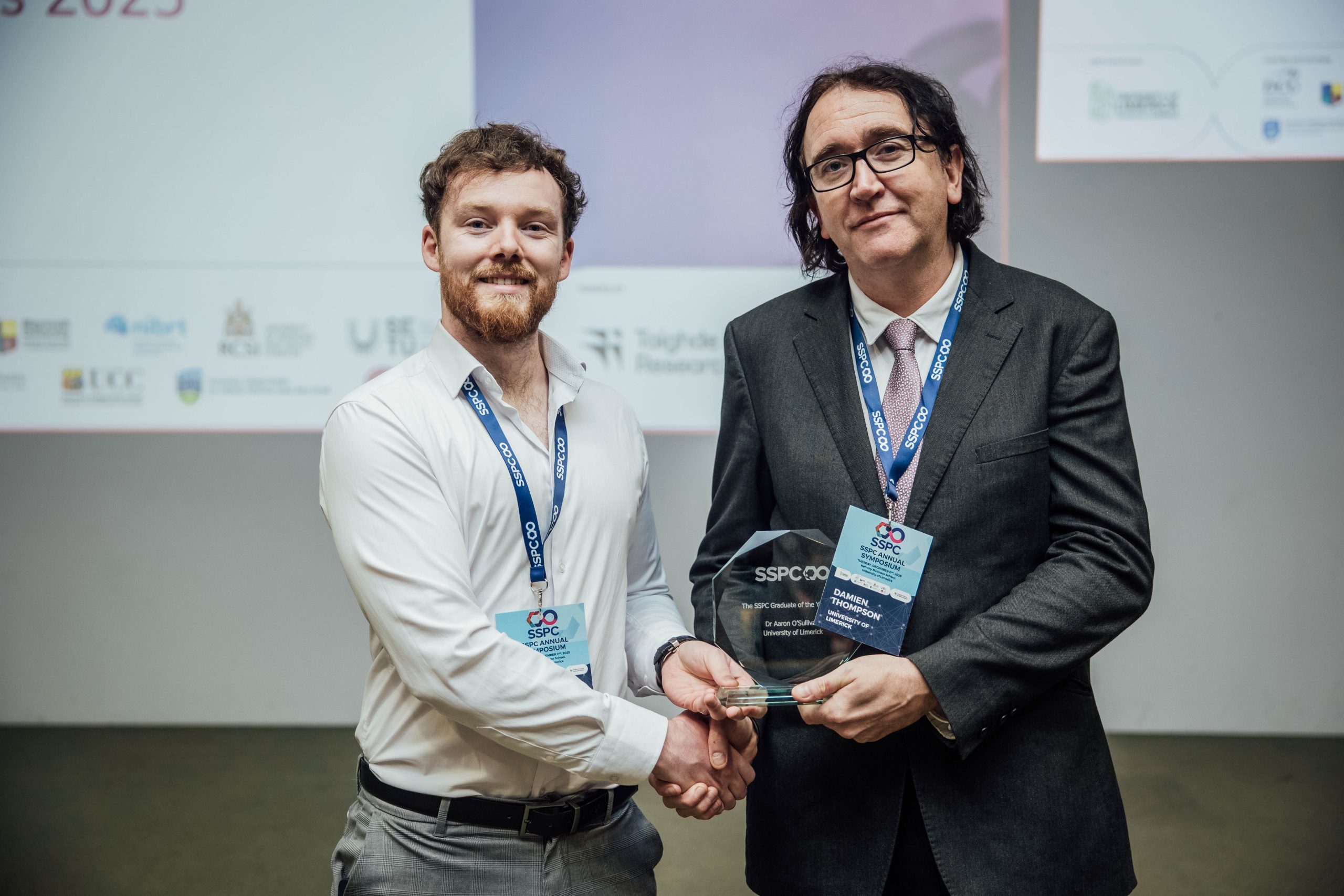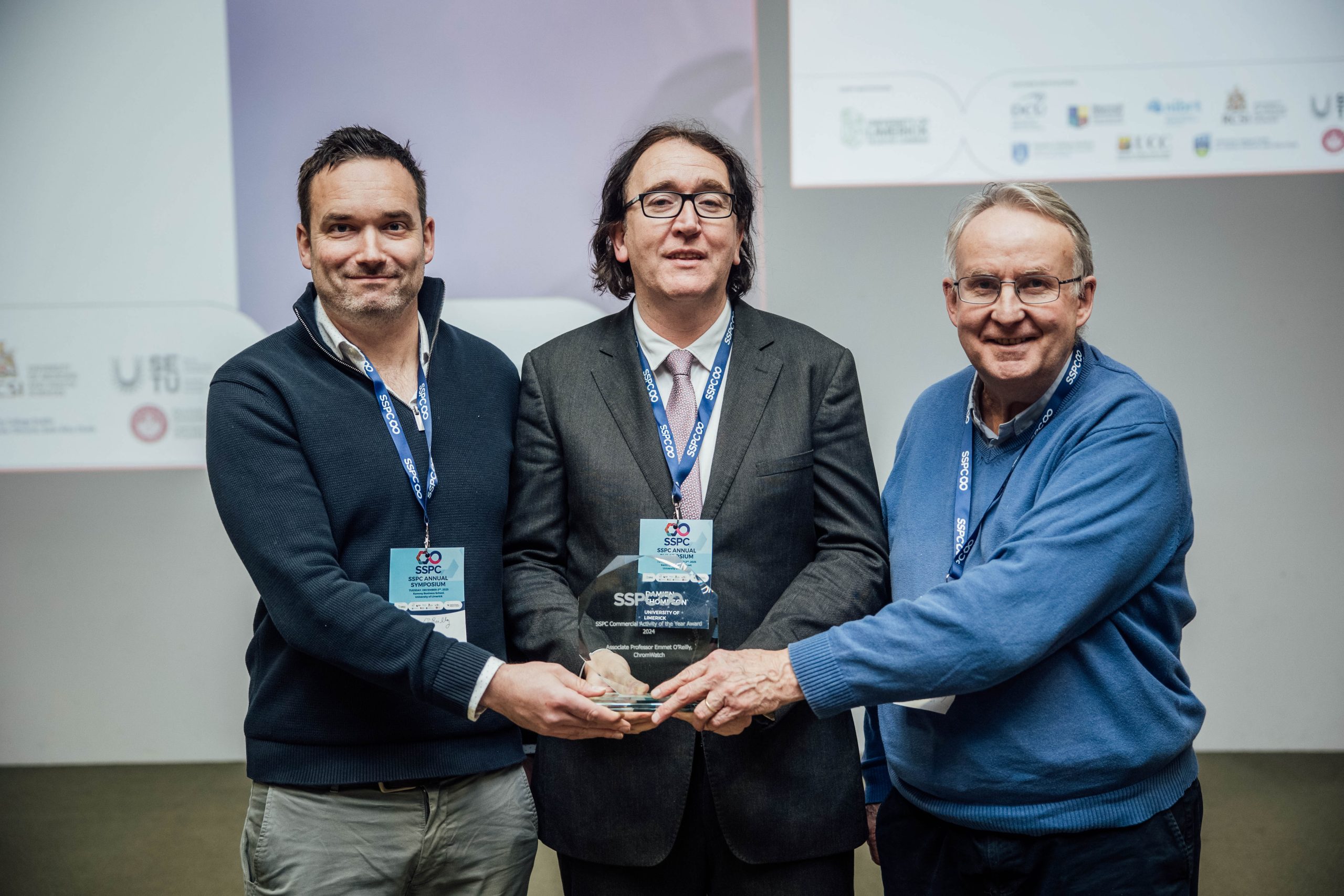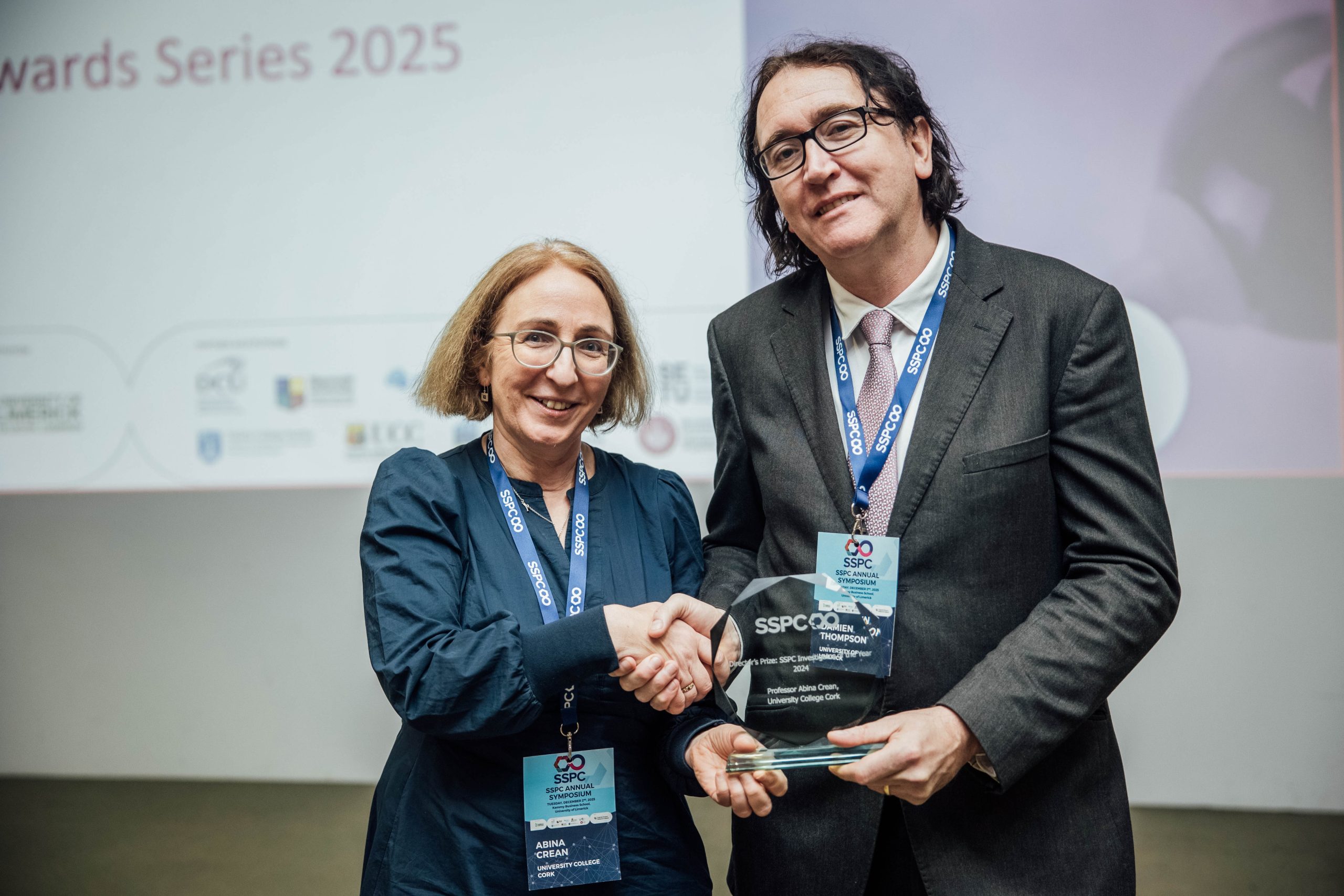My name is Ahmed Metawea and I am from Egypt. I graduated from University College Dublin (UCD) with a BSc in Chemical engineering in 2011 and my Masters in 2014. I began my PhD under the supervision of Prof. Gavin Walker at the Bernal Institute, University of Limerick (UL).
My research focusses on the continuous synthesis of metal organic framework, in particular using spray drying and twin screw granulator technique. Following some initial studies in the area of continuous manufacturing and coordination chemistry, I began investigating a new, selective method for synthesising a well Known zirconium based Metal-organic frameworks (MOF). Having synthesised these new compounds with conventional methods, I proceeded to apply continuous manufacturing techniques to synthesis them in solvent less mode. Using system engineering and optimization parameters techniques supported with design of experiments, we investigated the effect of process parameters on the yield and the purity of the produced MOFs using on-line and off-line characterization techniques. MOFs are the adsorbents of the future due to their high adsorption capacity and their huge potential to solve lot of challenging problems.
Through SSPC, I took up a placement in MSD Brinny in January 2022 in the Process Development and Commercialisation (PDC) department (TechOps), reporting to Fiona Lohan and Sean O’Keeffe. During my placement I worked on a Micro-ultrafiltration project for filtering the vaccine. The main project I focussed on was applying multivariate analysis to investigate effect of process parameter on the vaccine production on a lab scale set-up.
Together with my co-workers, I carried out the development work needed prior to the experimental work on a small scale in the lab, supporting the scale up of the process in the factory. This development work included aspects such as effect of fouling and filtration studies. I attended online weekly meetings with the R&D team in West point in the US throughout the duration of my placement, and had the opportunity to present my results at these meetings. This was a great experience to participate in the knowledge transfer needed to successfully scale up a process from R&D to factory production across two different sites. I carried out supporting experiments during factory production, providing valuable information about the process. I attended various meetings dealing with issues which arose during production and helped to carry out the lab work needed to address these issues. Other projects I worked on during my placement included carrying out the lab work to support deviation investigations in supply products. This gave me a good insight into the chemistry used to synthesise a number of products on site.
In some ways, the work I was doing was familiar to me – in both my PhD and on placement my day-to-day activities involve continuous manufacturing in the lab, carrying out reactions using various chemicals. The phase of the reactions I was carrying out was very different as I am working with solid synthesis and my assigned unit was a liquid operation. The equipment used in my placement was mostly new to me, with good exposure to new technologies such as lyophilisation and homogenizer, and the blaze laser imaging technology. There was a lot of practical learning taken from doing things on a much bigger scale. I also learned a lot more about filtration, something I hadn’t had much detailed exposure to in my PhD. I’ve taken away a lot of ideas for how I could improve my own research and I have a much deeper understanding of how crystallisation works after my time on placement.
A big difference for me when I was on placement was the amount of people working on the same project. In my main project on placement, for the one step it took to make the product there was a team of about 8 people in the Brinny site and about 30 in WestPoint. This meant that there was a lot of cross-functional meetings as well as lab work.
In my PhD, I work on a project with one other person and the majority of time is spent in the lab. The people involved on placement also came from very diverse backgrounds, bringing understanding from other perspectives such as pharmaceutical chemistry. It was a great opportunity to broaden my knowledge and to try and understand the roles of the various departments contributing to making the drug. Another difference was that in my PhD, I do a huge variety of reactions making a number of different products: on placement I was largely working on one single project, but there was a much deeper understanding of this project and the factors which influenced how the product was made.
Overall, my PhD has set me up well to understand the engineering that is carried out in the pharmaceutical industry, but there is much to learn about the practicality of carrying this chemistry out on a large scale. I found my placement eye-opening in regards to the variety of expertise required to get a new drug to the market. There is an exciting variety of roles for chemists in industry and I think my placement has given me a flavour of the work involved in these very different jobs. Chemistry on an industrial scale requires a lot of new learning and is a different type of challenge to academic research.
Before beginning my placement, I was sure that I wanted to pursue a career in the pharmaceutical industry following my PhD, and this placement has further reinforced that. In particular, I have found the area of new product introduction to be very exciting and I am looking forward to starting out in a similar role after my PhD. The placement has given me a great opportunity to witness the types of roles I could be doing even further down the line. I have some idea of what I could be working towards, for example I’d love the chance to manage a new development project. The variety of roles in industry is particularly appealing – there’s always something new to learn and the work is rarely boring.
An industrial placement is an invaluable experience for a PhD researcher. It’s essentially a long interview where you can demonstrate what you’re capable of to a company you might want to work for in the future. The opportunity to trial a role without having to commit to a long contract is rare and a placement offers you this. You are exposed to a variety of roles and really it’s the first time you get to explore the activities involved in different positions and test out where your strengths might lie. You also get to meet a lot of new people from various backgrounds who can share their experiences with you.
Connecting with a company is a huge advantage when it comes to searching for a job – you have experience your peers may not have had, and if you have performed well on your placement, then you will likely be welcomed back if positions are available. On top of this, I think that taking a few months out to do a placement has been beneficial to my PhD. I am returning to my research project refreshed and with new perspective. Having worked in a different environment for four months, I think there are learnings and new ideas I can take and implement in my PhD.

